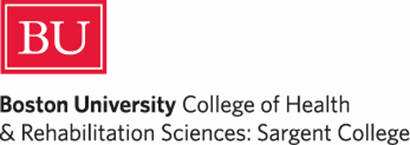2021 Boston Speech Motor Control Symposium
2021 Boston Speech Motor Control Symposium
Overview
The Boston Speech Motor Control Symposium (BSMCS) is a regional conference aimed at providing an accessible and inclusive environment for those near the Boston area to share research involving speech motor control. This year, BSMCS will go fully virtual due to the current concerns of the global pandemic. We miss meeting all of you in person in Boston, but we are excited to welcome a larger audience of people from all around the world this year to join us for the one-day event! We hope that BSMCS will be a great opportunity to bring together students, researchers, and clinicians from the numerous subfields within speech motor control to ultimately highlight new research within these areas, generate new research ideas, and foster faster clinical translation of important findings. This is a one-day conference, with a pre-conference tutorial specifically aimed at trainees (students and post-docs). The conference is sponsored by Boston University’s Sargent College, Delsys, and the NIDCD via an R13 Conference Grant. Our program has been approved for 0.35 ASHA CEUs.
Key Dates
January 01, 2021 : Abstract submission opens ✔️
March 01, 2021 : Abstract submission deadline ✔️
April 01, 2021 : Registration is now open for BSMCS2021! See the registration section below for more information ✔️
April 01, 2021 : Authors notified ✔️
April 08, 2021 : Early registration deadline ✔️
May 08, 2021 : Late registration deadline ✔️
June 17, 2021 : Pre-conference tutorial for trainees ✔️
June 18, 2021 : Boston Speech Motor Control Symposium 🔔
Invited Speakers
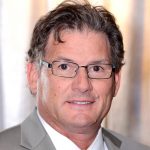 |
Keynote Speaker: Steven Barlow, PhD Professor of the Department of Special Education and Communication Disorders at University of Nebraska, Lincoln Affiliate Professor of the Department of Biological Systems Engineering at University of Nebraska, Lincoln Associate Director of the Center for Brain, Biology, and Behavior Dr. Steven Barlow is the Corwin Moore Professor of Communication Disorders, and Biological Systems Engineering, and also serves as the Associate Director of the Center for Brain, Biology, and Behavior at the University of Nebraska. He has a broad background in biology, speech physiology, neuroscience, biomechanics, and bioengineering as it relates to research on sensorimotor neurophysiology and plasticity of orofacial systems in humans across the lifespan in health and disease. Dr. Barlow’s work has found multiple applications in translational neurotherapeutics, functional brain imaging, and FDA-approved therapy to induce ororhythmic patterning and promotes oral feeding in premature infants in the NICU. He is the PI for an NIH randomized controlled trial at four NICUs (Boston, Lincoln, San Jose, Los Angeles) designed to explore the effects of pulsed somatosensory stimulation on gene expression of oral feeding markers in extremely preterm infants (<29 wks GA). Dynamic, non-invasive somatosensory stimulus arrays developed in the Barlow laboratory have facilitated collaborative research to better understand physiological response properties and connectivity in the somatosensory system using fMRI, fNIRS, fTCD, and MEG with the goal of developing new interventions in brain injury and cerebrovascular stroke. |
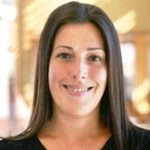 |
Kelly Richardson, PhD, CCC-SLP Assistant Professor of the School of Public Health & Health Sciences at University of Massachusetts Amherst The Speech Motor Systems Laboratory conducts research on speech motor control in individuals with neurological impairment. One line of research aims to compare physiologic adjustments and perceptions of physical and mental effort associated with two behavioral voice treatments for hypophonia in persons with Parkinson’s disease. This line of research is presently funded by NIH-NIDCD R21DC016718 (PI: Richardson, Co-I: Huber). Additional studies are comparing acoustic analysis software programs in their assessment of dysphonia and investigating changes in auditory-perception associated with Parkinson’s disease. |
 |
Kristen Allison, PhD, CCC-SLP Assistant Professor of the Department of Communication Sciences and Disorders at Northeastern University Dr. Allison is an assistant professor in the Department of Communication Sciences and Disorders and director of the Speech Motor Impairment and Learning (SMILe) Lab in the Bouve College of Health Professions at Northeastern University. Her research focuses on improving assessment and treatment of pediatric motor speech disorders, particularly in children with dysarthria. |
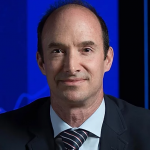 |
Mark Richardson, MD,PhD Director of Functional Neurosurgery at Massachusetts General Hospital Visiting Associate Professor of the Brain and Cognitive Sciences at Massachusetts Institute of Technology Before bringing the Brain Modulation Lab to MGH, Dr. Richardson was Director of Epilepsy and Movement Disorders Surgery at the University of Pittsburgh Medical Center (UPMC). His clinical expertise includes awake brain mapping, robotic-assisted surgery for both stereo-EEG and DBS implantation, and Responsive Neurostimulation for epilepsy. At UPMC, he established one of the world’s leading intraoperative-MRI functional neurosurgery programs, encompassing DBS for movement disorders, gene therapy clinical trials for Parkinson’s disease, and laser thermal ablation for epilepsy, work which now continues at MGH. Unique contributions of the Brain Modulation Lab include the first studies describing simultaneous cortical and subcortical recordings during speech, and the first study describing biomarkers of therapeutic responsive neurostimulation for epilepsy. |
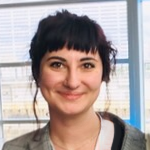 |
Jennifer Vojtech, MS, PhD Delsys, Inc. and Altec, Inc. Prior to joining the Delsys team, Jenny completed her doctorate in biomedical engineering in the STEPP Lab for Sensorimotor Rehabilitation Engineering with Cara Stepp. Her doctoral work focused on developing computational methods to improve the clinical assessment of voice disorders and applying quantitative techniques to enhance augmentative and alternative communication device access. While at Altec/Delsys, Inc., Jenny collaborates with a multidisciplinary team of scientists and engineers to design technology for evaluating and augmenting communication in those with speech and voice disorders. |
Registration
Registration opening day: 01 April 2021 ✔️
Early registration deadline: 08 April 2021 ✔️
Late registration deadline: 08 May 2021 ✔️
Registration for the 2021 Boston Speech Motor Symposium is closed!
Questions regarding registration should be directed to the BSMCS organizing committee (bsmcs@bu.edu).
The registration fee for BSMCS 2021 is US $10.00, or $5.00 for enrolled students.
Note: All refunds will be processed three weeks prior to the symposium date and will subtract 20% of the registration cost for the administration fee.
Information for Poster Presenters
All posters must be 36″ wide by 60″ tall and submitted as a PDF. For power-point users, the alternate dimensions of 33 x 55” are provided, in case 36″ x 60″ cannot be achieved.
Please note that this is in portrait orientation, NOT landscape!
All poster PDFs must be emailed to bsmcs@bu.edu by June 14th at 5:00 pm.
Click here for the abstracts and the list of BSMCS 2021’s poster presentations!
Click here for the abstracts and the list of BSMCS 2021’s pilot/planned study poster presentations!
🔔 Round Table Discussions 🔔
One of the key aspects of BSMCS is to provide accessible experiences for trainees. At our typical in-person meeting, trainees would have an opportunity to meet with invited speakers at a special lunch and at the in-person poster reception. Since those are not options this year, we have organized five round tables in the Gather.town virtual platform with specific topics of interest to the audience, particularly trainees. This would be an additional opportunity for the attendees to carry out Q &As with the panelists as well. The round table topics are as follows;
- Table 1: Research Informing Assessment and Treatment of Dysarthria (co-hosted by Dr. Kristen Allison & Dr. Allison Hilger)
- Table 2: Being an Effective Mentor & Effective Mentee (co-hosted by Dr. Jason Bohland & Defne Abur)
- Table 3: Technology for Assessment of Speech Motor Control (co-hosted by Dr. Steven Barlow & Dr. Jennifer Vojtech)
- Table 4: Modeling for Speech Motor Control (co-hosted by Dr. Frank Guenther & Dr. Adam Lammert)
- Table 5: Techniques for Successful Grant Writing (co-hosted by Dr. Cara Stepp & Dr. Chris Moore)
Please navigate to the Round Tables Room in the Gather.town environment during the networking portion of the symposium from 4.20 PM to 6.00 PM EST on 18th June, Friday to join these round tables! Click here to navigate to the symposium Gather.Town space.
BSMCS Inclusion Policy
The Boston Speech Motor Control Symposium strives to be an inclusive event for all, regardless of race, gender, sexual orientation, or physical ability. If you have any comments or concerns throughout the symposium, please contact us at bsmcs@bu.edu.
Symposium Agenda
To tweet during the conference please use: #2021BSMCS
| Thursday, 17th of June 2021 | ||
| 03:30 PM | Trainee meet-and-greet for students and postdoctoral researchers | Gather.Town |
| 04:00 PM | Tutorial: Jason Bohland, Ph.D., University of Pittsburgh Using fMRI to understand the neural correlates of speech motor control |
Zoom |
| 06:00 PM | Adjourn | Zoom |
| Friday, 18th of June 2021 | ||
| 09.00 AM | Poster set up | Gather.Town |
| 09.55 AM | Conference Opening | Zoom |
| 10:00 AM | Invited Talk: Kelly Richardson, Ph.D., CCC-SLP., University of Massachusetts Amherst A Comparison of Two Forms of Voice Treatment for Parkinson’s Disease |
Zoom |
| 10:40 AM | Invited Talk: Kristen Allison, Ph.D., CCC-SLP., Northeastern University Improving Early Diagnosis of Pediatric Dysarthria |
Zoom |
| 11:20 AM | Sponsored Talk: Jennifer Vojtech, MS, Ph.D., Delsys Inc and Altec Inc. Personalizing Augmentative and Alternative Communication Technologies through sEMG- and IMU-based Systems |
Zoom |
| 12.00 PM | Lunch | Gather.Town |
| 01.00 PM | Poster Presentations | Gather.Town |
| 02.30PM | Keynote Address with Steven Barlow, Ph.D., University of Nebraska, Lincoln Mechanosensation: Assessment, Functional Neural Networks, and Therapeutic Applications in Shaping Motor Behavior |
Zoom |
| 03.40 PM | Invited Talk: Mark Richardson, MD, Ph.D., Massachusetts General Hospital How does the basal ganglia help us speak? |
Zoom |
| 04:20 PM | Networking & Round Table Discussions 🔔 | Gather.Town |
| 06:00 PM | Adjourn | |
Virtual Symposium Information
The Boston Speech Motor Control Symposium will be held virtually this year. Invited Talks will occur as Zoom Webinars, with “Q&A” opportunities provided at the end of each talk during each speaker’s allocated discussion time. The zoom webinar links used for the conference and pre conference have been emailed to all registered attendees of the Symposium. Poster Presentations will be held in Gather.Town virtual conference environment. The poster session will span two hours. The organizers will keep the Gather.Town environment online for the duration of the Symposium for live interactions between attendees, speakers, and sponsors.
Zoom and Gather.Town information has been emailed to all participants on June 14th, 2021. Click here for the Gather.Town guide of the symposium. We recommend attendees to sign into Gather.Town and access the environment for the symposium ahead of time to familiarize themselves with the format. Please note that the space can only be accessed by attendees of the symposium using the email address they provided at registration.
Click here to navigate to the symposium Gather.Town space. The zoom webinar link for the main conference is embedded in the Auditorium in Gather.town space.
Organization and Contact
Program & Organizing Committee:
- Cara Stepp
- Jason Bohland
- Frank Guenther
- Christopher Moore
- Melanie Matthies
- Adam Lammert
- Defne Abur
- Hasini Weerathunge
- Hilary Miller
- Kara Smith
Questions? Feel free to contact us at bsmcs@bu.edu with any inquiries.
Sponsors
